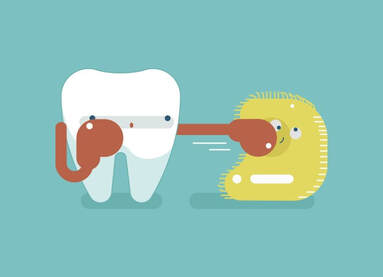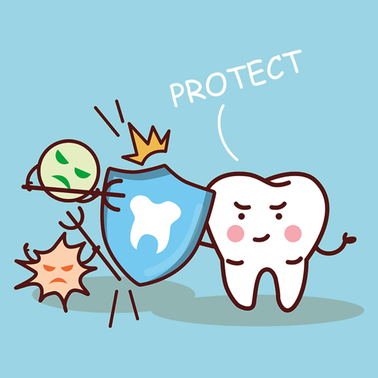Fluoride is a naturally occurring mineral found in soil, water, and certain foods. It has gained prominence due to its remarkable ability to strengthen teeth and prevent cavities. According to the American Dental Association, dental cavities are the most common disease for children and adults worldwide. The enamel, the outer layer of our teeth, is subjected to constant attacks by acids produced by bacteria in our mouths. These acids erode the enamel and lead to cavities. Fluoride intervenes in this process by remineralizing the enamel, making it more resistant to acid attacks and reducing the risk of decay.
The Benefits of Fluoride in Dental Health:
- Enamel Strengthening: Fluoride interacts with the minerals present in enamel, forming a more robust crystalline structure. This strengthened enamel is less susceptible to the damaging effects of acids, helping to ward off cavities.
- Preventing Demineralization: When bacteria break down sugars in the mouth, they produce acids that can strip minerals from the enamel, a process known as demineralization. Fluoride counters this process by encouraging the remineralization of weakened enamel, reversing early stages of tooth decay.
- Protection for All Ages: Fluoride benefits people of all ages, from young children whose developing teeth need extra protection to adults looking to maintain their oral health as they age.
- Cost-Effective Prevention: Incorporating fluoride into your oral care routine is an affordable way to prevent cavities and avoid costly dental treatments down the road.
Despite its proven benefits, there are persistent misconceptions about fluoride that deserve clarification:
- Fluorosis: One concern is that excessive fluoride consumption can lead to a condition called fluorosis, which causes faint white lines or spots on the teeth. However, fluorosis is a cosmetic issue that typically arises from consuming excessive fluoride during the tooth-forming years. The levels of fluoride in toothpaste and public water supplies are carefully regulated to prevent such occurrences.
- Toxicity: There are fears that fluoride is toxic, but when used as directed, it is entirely safe. In fact, many substances can be harmful in excessive amounts, including everyday items like salt and vitamins. The key is moderation.
- Natural Sources of Fluoride: Some people believe that naturally occurring fluoride in water is sufficient and that additional exposure through dental products is unnecessary. However, not everyone has access to fluoridated water, and even natural sources may not provide optimal levels for cavity prevention.
- Fluoride-Free Alternatives: While there are fluoride-free dental products available, they might not offer the same level of protection against cavities. It's essential to consult your dentist to determine the best oral care routine for your specific needs.
Incorporating Fluoride into Your Oral Care Routine:
- Fluoridated Toothpaste: Use toothpaste with fluoride as an active ingredient. For children, choose age-appropriate fluoride levels.
- Fluoride Treatments: Your dentist may recommend fluoride treatments during your regular dental checkups, especially for children and individuals with specific risk factors.
- Fluoridated Water: If your tap water isn't fluoridated, your dentist might recommend fluoride supplements, particularly for children living in non-fluoridated areas.
- Balanced Diet: Consume a diet rich in calcium and phosphate, as these minerals work together with fluoride to remineralize enamel.
Fluoride remains an essential tool in the fight against cavities and the preservation of oral health. As the evidence overwhelmingly supports its benefits and safety, concerns and misconceptions should not overshadow its importance. By incorporating fluoride into our oral care routines and understanding its role, we can all take steps towards brighter, healthier smiles for years to come.
We would be happy to discuss your particular situation and decide what type of preventative therapy would be best for you...Give us a call at 480-991-4727 to schedule an appointment with one of our Doctors or Dental Hygienists soon! We can't wait to see you!
See what the evidence says about fluoride for your dental health!
- American Dental Association (ADA) Fluoride Link
- Centers for Disease Control and Prevention (CDC) Water Fluoridation: Link
- National Institutes of Health (NIH) Fluoride Information: Link
- Academy of General Dentistry (AGD) Fluoride Information: Link
- Clinical research articles available from these sources:


 RSS Feed
RSS Feed